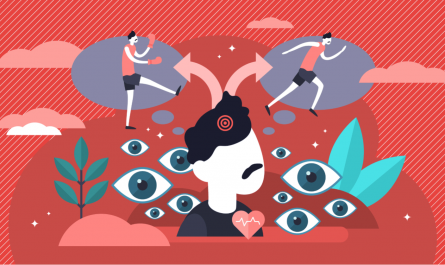CHILDHOOD DEPRESSION AWARENESS DAY
In most cultures, childhood is considered the most crucial stage for the formation of individuals. Majorly because it is at this age that people learn most of the things they will use throughout their lives, but also because it is when they are most fragile and vulnerable. Children must be cared for, nurtured, and protected. The last few generations were marked by profound social transformations and severe crises that altered the various childhood protection networks worldwide. Between wars and a decline in the environmental quality of life, children have gradually lost their right to childhood, either through the reduced public spaces to play and explore or the dismantled protection and education networks, among many other factors.
According to the Center for Mental Health Services, approximately one in thirty-three children and one in eight adolescents has depression. Although many recognize the warning signs of depression in adults—sadness, withdrawal, and lack of interest—many don’t realize that depression may look differently in youth. Besides feeling sad and hopeless, adolescents with depression may also complain of frequent headaches or stomachaches. They may also become irritable or act out.
Depression is more than “feeling blue” or having a bad day. Depression is a serious and common medical illness that affects a person’s mind and body. This disease interferes with one’s ability to function and feel pleasure. It is accompanied by feelings of sadness, physical discomfort, and withdrawal from people and activities. People with depression can’t just “snap out of it,” but instead require treatment from a primary care physician or qualified mental health professional. Left untreated, childhood depression can lead to school failure, substance abuse, and even suicide.” In fact, suicide is the third leading cause of death for 15- to 24-year-olds and the sixth leading cause of death for 5 to 14-year-olds. Mental disorders are treatable once diagnosed by a primary care practitioner or mental health professional. In fact, most people with depression can be successfully treated. As with many illnesses, the key to getting better is diagnosing the problem and having access to appropriate treatment. The sooner the treatment begins the more effective it can be. Treatment options include psychotherapy (talk therapy), psychiatric medication, and support services such as peer support groups and social skills training.
There are several things you can do to help your child cope with their mental health. First and foremost, you need to prioritize your child’s mental health just as much as their physical health. With this in mind, you should be able to openly talk about how they feel without worrying about being punished for their feelings. Ideally, your child should understand that pain, fear, sadness, anxiety, and anger are all normal emotions and that they can safely talk about these feelings.
Of course, you also want to be a model for your child. This is very important, especially for young children who learn by observation. To be a good role model about mental health, you should talk about your own mental health and talk through your feelings with your child. And in those times when your anger is most visible, remember to apologize to your child so they learn not to communicate anger. Disciplining your children should also be seen as a form of upbringing, rather than just corporal punishment when they misbehave. With this in mind, you should draw attention to positive and negative behaviors so your child can learn what is expected of them. Boundaries about their behavior also need to be clear and consistent.
You should also encourage your child to learn and grow by allowing them to participate in social and school activities. With this, you’ll want to celebrate their unique talents and accept their limitations.
Warning signs of depression in a child or adolescent include:
* Sad, hopeless, or irritable feelings
* Falling behind in school or earning lower grades
* Losing interest in friends or activities usually enjoyed
* Avoiding people; wanting to be alone all of the time
* Talking about suicide or death
* Hurting other people or animals; damaging property
* Major changes in eating or sleeping habits
Once a child experiences an episode of depression, he or she is at risk of having another episode within the next five years. Promoting mental health awareness and knowing the warning signs of mental health problems are essential to improving and saving young people who may be risk for depression and other mental illnesses.
HOW TO OBSERVE CHILDHOOD DEPRESSION AWARENESS DAY
Learn more about depression
Depression is a collective problem everyone should be aware of. When it affects children, the responsibility is even greater. Childhood Depression Awareness Day is the perfect time to learn about it.
Take children’s psychological distress seriously
Children need to be taken seriously and their pain heard. During Childhood Depression Awareness Day, train your empathy and truly talk and listen to children.
Contribute to the funding campaign
To further spread awareness of childhood depression, the National Federation of Families for Children’s Mental Health runs fundraising campaigns. Contribute whatever you can to the Green Ribbon Campaign.
5 FACTS ABOUT DEPRESSION IN CHILDREN YOU SHOULD KNOW
Antisocial behavior – Children and teens who suffer from depression tend to isolate themselves and lose interest in activities that require social skills.
Drop in school performance – Depression is a very debilitating condition, and one of the first noticeable effects in children is a drop in school performance.
Apathy and irritability – When suffering from depression, children and adolescents often assume a fight-or-flight posture, which is reflected in apathetic or aggressive behavior.
Sleep and eating disorders – It is very common for depressed children to have chronic sleep problems such as bruxism, night terrors, and insomnia, as well as eating problems such as bulimia, anorexia, and body dysmorphia.
Fixed ideas about suicide and death – The pain of depression can lead to morbid obsessive thoughts, which greatly increase the risk of suicide.
Children helpline numbers – 1098




